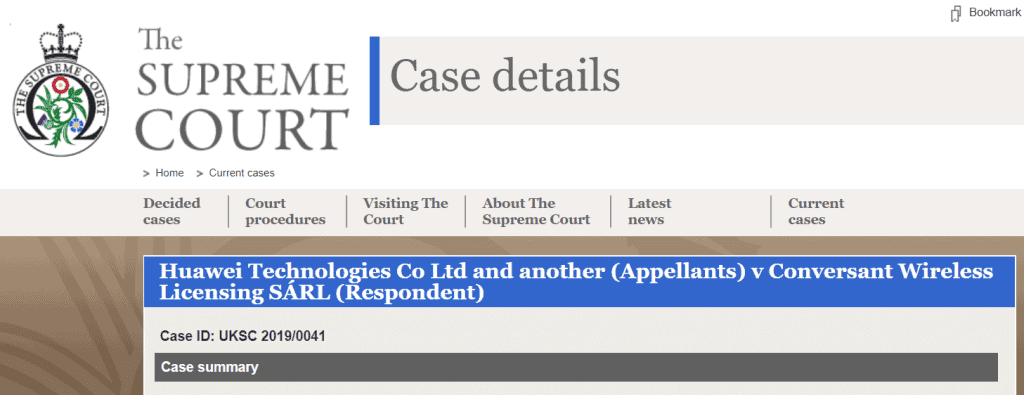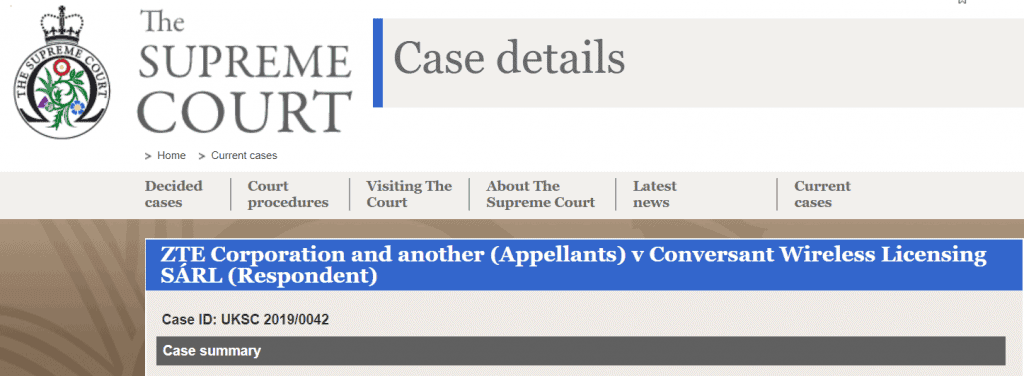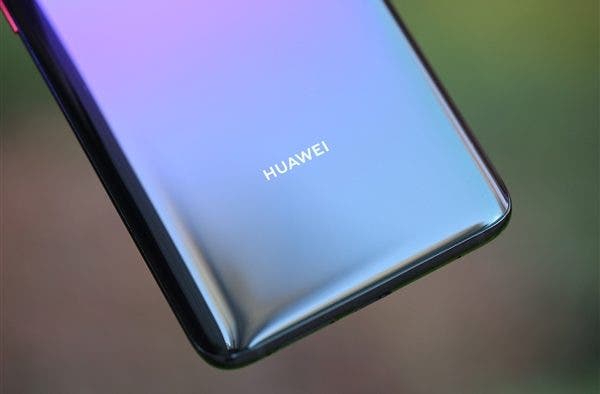Today, the British Supreme Court unanimously rejected the patent dispute appeals of Huawei and ZTE against Conversant Wireless Licensing SÁRL. Furthermore, the court confirmed that there should be set global royalty rates for widely used telecommunications technology. The patent dispute involves four companies: Huawei, ZTE, Unwired Planet International Ltd, and Conversant Wireless Licensing.

The first appeal involved UP’s lawsuit against Huawei for infringement of five British patents. The report stated that UP had obtained these patents from Ericsson. A British court has previously ruled that the two UP patents are valid, legitimate, and necessary.

In 2017, the US patent licensing company Unwired Planet International Ltd sued Huawei for using UP’s patents in 4G phones. The company is requiring the Chinese manufacturer to pay a license fee to UP. If Huawei refuses to pay the fee, the court has the right to stop its mobile phone sales.
Now that Huawei’s complaint is rejected, it means that Huawei must either pay UP. The payment will be in accordance with the global patent royalty rate set by the British judge. It is either it pays or be prohibited from selling mobile phones and other communication equipment in the UK.
Huawei and ZTE will have to pay a set global patent royalty rate
In another related ruling involving Conversant Wireless Licensing Co., Ltd., the court also rejected the claims of Huawei and ZTE (if any court wants to set a global patent royalty rate, it should be set in China, because China is where the manufacturing and sales take place).
UP and Conversant Wireless Licensing have patents related to 2G, 3G, and 4G telecommunication standards respectively. The former is seeking to claim royalties from Huawei, while the latter also believes that it has the right to claim royalties from Huawei and ZTE.
The report pointed out that Huawei and ZTE declared that “the British courts have no power to govern and determine the validity of foreign patents”, but in the end, the trial judge rejected their complaint, and the ruling was based on international patent jurisdiction.
According to Boris Texler, CEO of Conversant Wireless Licensing, he is “very satisfied” with the result.
The Chinese manufacturers are challenging some rulings that will effectively make the British courts a one-stop agency for setting global patent royalty rates. Other patent owners are closely following these cases because it could set a new standard. These cases put the owners of standardized technology patents in a dilemma, including those from Qualcomm and Ericsson.





